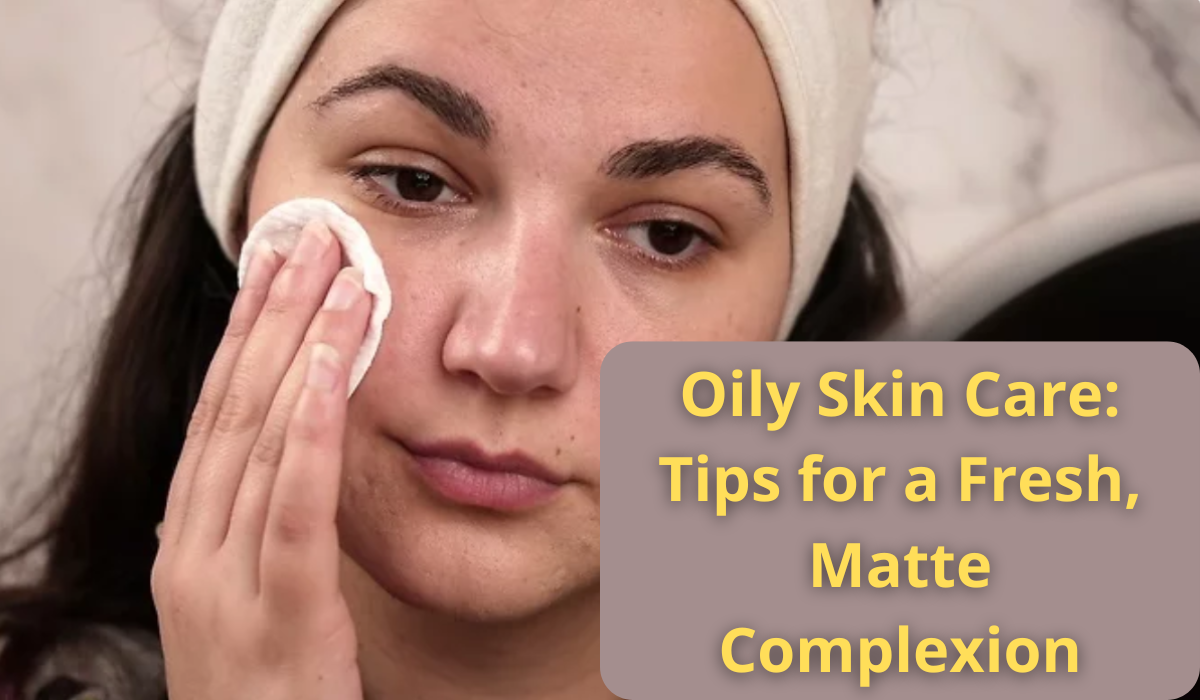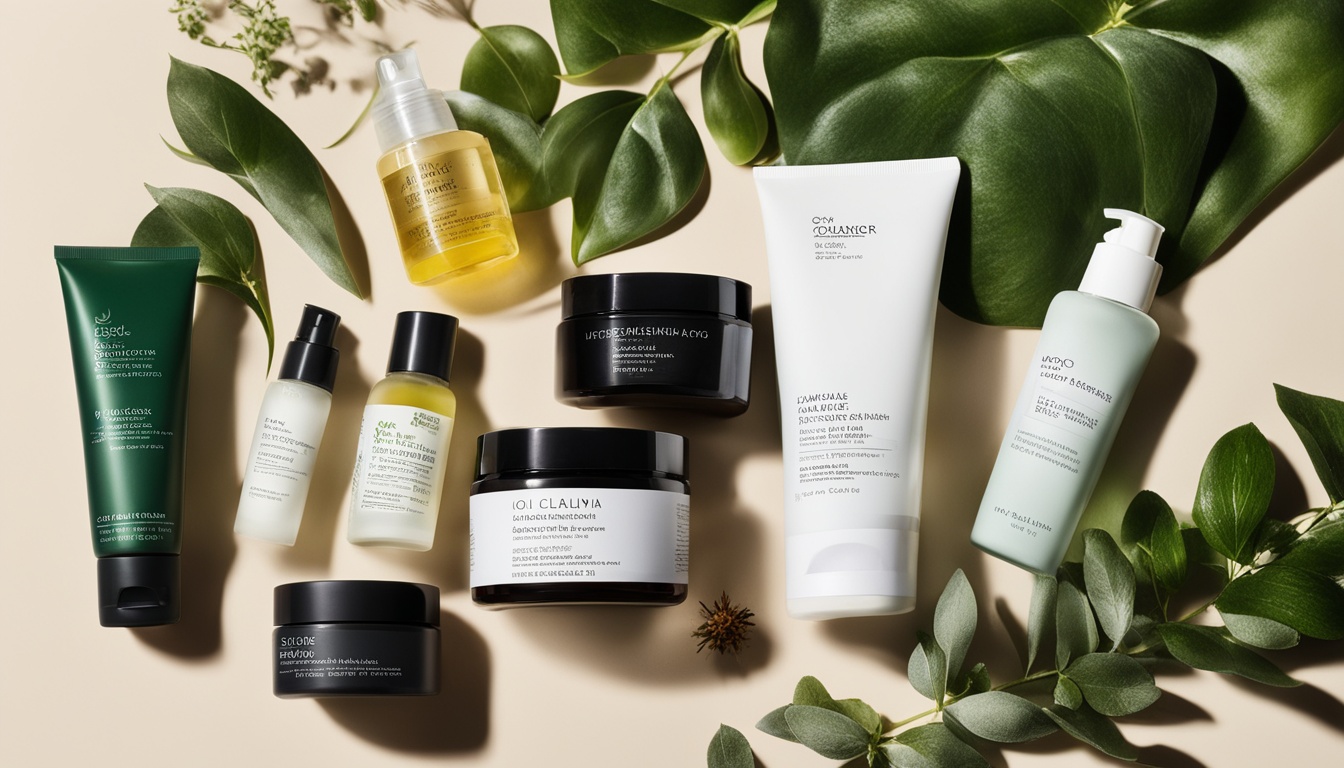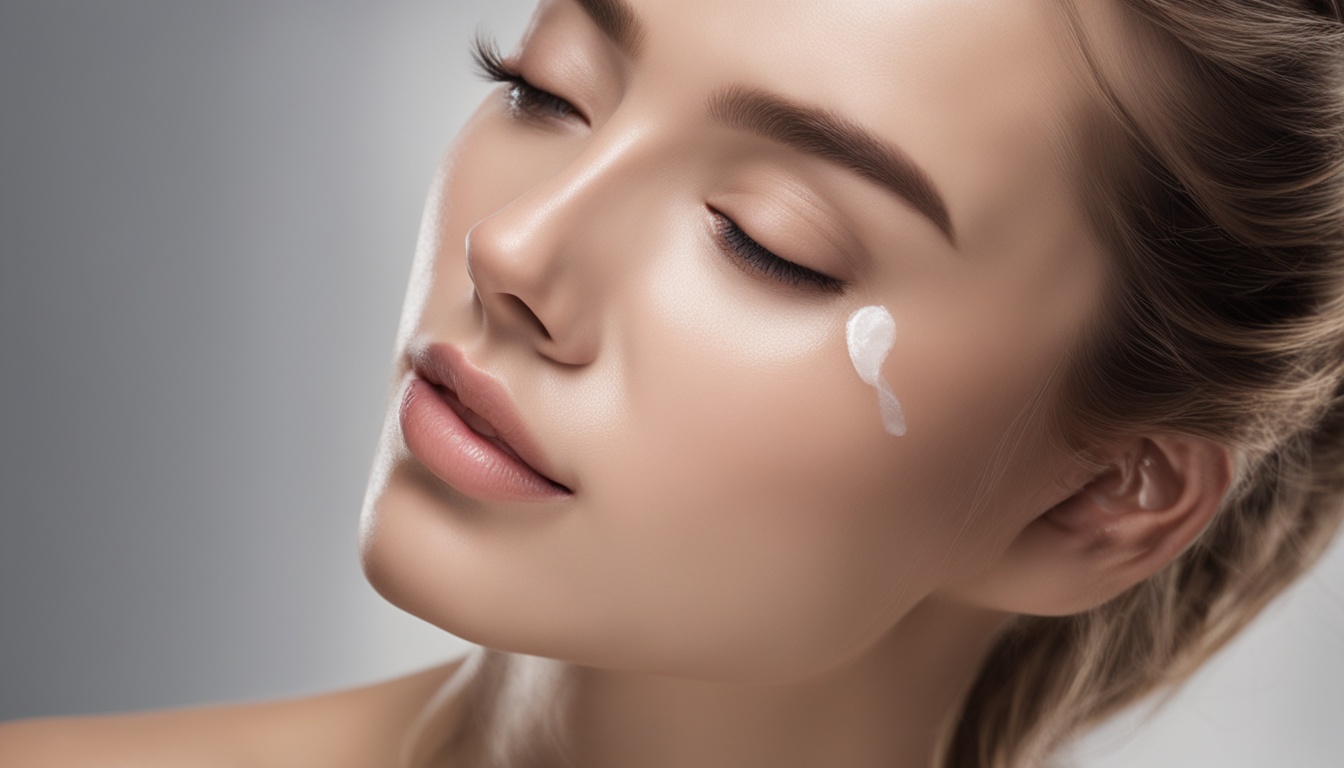Many people are worried about their oily skin and how to take care of it. This guide offers expert advice to help manage oily skin, reduce pore size, and keep your face looking fresh and matte. It explains what makes skin oily, the reasons behind too much oil, and how to select the best skincare products. With this information, you can create a skincare routine that's perfect for your oily skin. This will help keep your skin healthy and balanced.

Understanding Oily Skin
Oily skin is very common. It's noticeable because it makes the skin look shiny and greasy. This happens because the body produces too much of its natural oil, called sebum. This often leads to more acne.3 Knowing about your skin type is the first step to taking good care of it. It helps you choose the right products and treatments.
Characteristics of Oily Skin
People with oily skin may see more shine, especially in their T-zone. This area includes the forehead, nose, and chin. Oily skin is often linked with clogged pores, blackheads, and acne.3 However, one benefit is that oily skin might show fewer wrinkles early on.3
Causes of Excess Oil Production
Oily skin happens when the sebaceous glands make too much sebum. Several things can influence this process.3 Genetics are a big factor. Some people are just more likely to have oily skin.3 Hormones also play a part. Changes in hormones, like during puberty or pregnancy, can increase oil production.3 Men typically have more sebum, thanks to testosterone. But, women might experience intense oiliness around ovulation.3 Not drinking enough water can also make your skin oilier. It's the body's way of trying to protect itself.3
Identifying Your Skin Type
It's important to know if you have oily skin. Look for a shiny or greasy look, especially on the T-zone.3 Oily skin is often more prone to acne and has big pores.3 People with combination skin might find their T-zone oily but other areas dry or normal.
Oily Skin and How to Care for It
Caring for oily skin means tackling its unique challenges. You need to clean and tone well to fight acne and reduce pores. By knowing the right steps and products, you can get a clear, not shiny look. We'll walk through key parts of a good routine for oily skin.
Cleansing for Oily Skin
Starting with a proper cleanse is key for oily skin. Use a gentle, non-drying cleanser made for oily skin.4 Foaming cleaners work best as they remove extra oil without harm. Try CeraVe's Foaming Facial Cleanser with niacinamide, hyaluronic acid, and ceramides for a hydrated clean.5
Toning and Exfoliating
Toning and exfoliating after cleansing can do wonders for oily skin.6 A good toner can make pores look smaller. Regular exfoliation with salicylic acid helps open pores and remove dead skin.6
Treating Acne and Minimizing Pores
Oily skin often leads to acne and visible pores.6 For these issues, use products with salicylic acid, glycolic acid, or benzoyl peroxide.5 Sebum-absorbing items like Shinestopper and oil-absorbing masks can also cut shine and make pores less obvious.6
Choosing the Right Products
Oily skin needs lots of moisture. If your skin gets too dry, it makes more oil.5 Good choices for oily skin are light, non-greasy moisturizers. Look for ceramides, niacinamide, and hyaluronic acid.5
Oil-Free Moisturizers
For oily skin, pick moisturizers that are oil-free and won't block pores.2 Such moisturizers help reduce oil without causing breakouts.2 Choose ones with hyaluronic acid, niacinamide, and ceramides to manage shine and keep your skin hydrated.
Salicylic Acid Cleansers
Salicylic acid is great for oily, acne-prone skin.7 It helps clear pores, removes dead skin, and soothes redness.7 Top options include SkinMedica AHA/BHA Cleanser, Revision Purifying Cleansing Gel, and SkinCeuticals LHA Cleanser Gel.
Mattifying Sunscreens
Guarding oily skin from the sun is vital, but sunscreens can feel greasy.7 Choose mattifying, oil-free sunscreens. Good ones are EltaMD UV Clear Broad Spectrum SPF50, MDSolarSciences Mineral Crème SPF 50, and Murad Oil and Pore Control Mattifier Broad Spectrum SPF 45.7 They control oil and keep your skin matte all day.

Daily Skincare Routine for Oily Skin
Having a good daily skincare plan is key for those with oily skin.5 Oily skin happens often and causes issues like looking greasy or getting pimples.5 Using four steps every day can help keep your skin healthy and in balance.
Cleansing Step
It's important to wash your face both in the morning and at night.5 Oily skin can handle more washing because of the extra oils.5 Use a gentle cleanser made for oily skin. Foaming types are good because they clean well but don't harm your skin.
Toning Step
A toner with certain acids is great for oily skin.5 These acids can help reduce oil and make pores look smaller.
Treatment Step
You might want to use special products to treat oily skin, like those with benzoyl peroxide.5 These can help with acne and control oil.
Moisturizing Step
Using a light, oil-free moisturizer that's mostly water is beneficial for oily skin.5 It keeps your skin hydrated without making it oilier.
Sun Protection Step
Sunscreen with titanium dioxide or zinc oxide is best for oily skin.5 Avoiding alcohol-based products is a good idea. They can mess with your skin's natural oil levels.
With the right routine, people with oily skin can keep their skin under control.5 It helps reduce greasiness and keeps your skin looking and feeling good.
Weekly Treatments and Lifestyle Tips
Adding special treatments to your weekly skin care can boost your daily routine for oily skin. They offer focused help for common skin issues.8
Clay and Charcoal Masks
Clay and charcoal masks fight oil and unblock pores. They pull out dirt, cut down on shine, and help pores look smaller.8 Using these masks once a week can clean and tone your skin.
Chemical Peels
Light chemical peels work well for oily skin. They use AHAs or BHAs to shed dead skin, clear pores, and make skin smoother.8 Peels with salicylic acid are good for stopping excess oil and pimples.
Hydrating Serums
Oily skin might not need thick moisturizers, but serums are still great.9 Hyaluronic acid, niacinamide, and vitamin C in serums add moisture without making skin greasy.9 Serums are a good addition to your weekly care for a balanced look.
Diet and Stress Management
Your food and stress can also impact oily skin.5 Eating omega-3s, antioxidants, and zinc could control oil. Stress relief with exercise or meditation helps too.5 These habits are key for healthy, glowing oily skin.
FAQ
What are the main characteristics of oily skin?
Oily skin means your body produces too much oil. This can make your face look shiny. People with oily skin might get more acne, such as blackheads and whiteheads.
What causes excess oil production in the skin?
Our skin makes more oil to stay moist. Oily skin might have fewer wrinkles. Oil production can be affected by hormones, genes, weather, and some skincare products.
What is the best way to cleanse oily skin?
The first step for oily skin is a good cleanse. Use gentle, non-drying cleansers made for oily skin. Foaming cleansers work well because they remove oil effectively.
Do oily skin types need to moisturize?
Even oily skin needs moisture. If you dry out your skin, it can make more oil. Choose light, non-greasy moisturizers with ingredients like ceramides and hyaluronic acid.
How important is a consistent skincare routine for oily skin?
A strong skincare routine is key for those with oily skin. It's about more than just removing oil. It helps keep the skin's barrier strong, adds moisture, and fights acne. A regular routine can balance oil production and reduce breakouts.
What types of weekly treatments can benefit oily skin?
Weekly treatments can boost your oily skin routine. Try clay and charcoal masks, chemical peels, and hydrating serums. They help with specific skin problems and make your daily care more effective.


You must be logged in to post a comment.